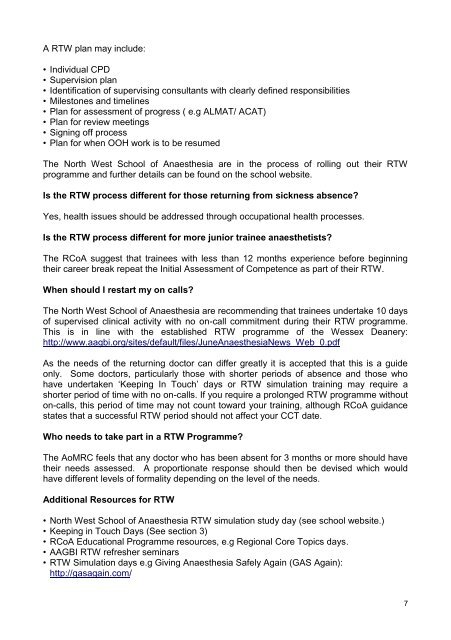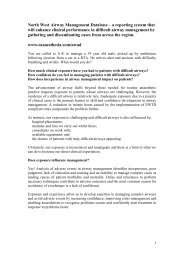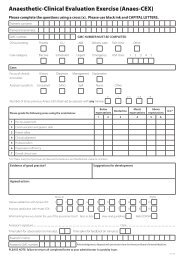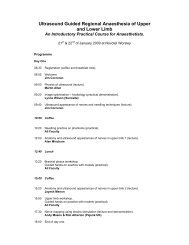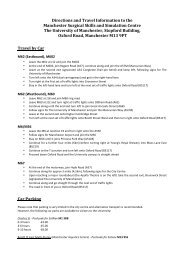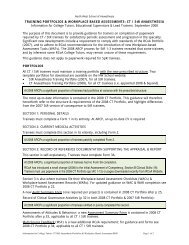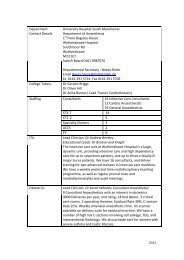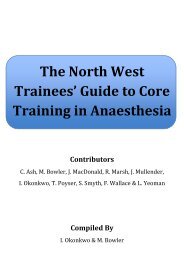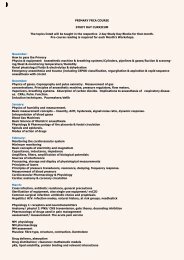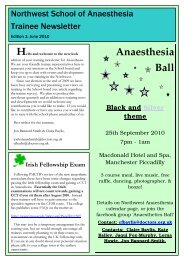Guide to Less Than Full Time Training - North West School of ...
Guide to Less Than Full Time Training - North West School of ...
Guide to Less Than Full Time Training - North West School of ...
- No tags were found...
Create successful ePaper yourself
Turn your PDF publications into a flip-book with our unique Google optimized e-Paper software.
TZIEROPOULOS 2Ten Years Behind NME Lines, and Beyondsurface <strong>of</strong> WTO. At last, the s<strong>to</strong>ry <strong>of</strong> China's accession is a sharp reminder that what countriessay and what they actually do is <strong>of</strong>ten very different.More significantly, the example <strong>of</strong> China's accession provides a formidable insight <strong>of</strong>the major shifts that the global economy has witnessed in the last 25 years. With theincreasing irrelevance <strong>of</strong> tariffs and the rise <strong>of</strong> global supply-chains fueled by emergingeconomies, the industrialized nations have been struggling <strong>to</strong> maintain their dominant positionin sec<strong>to</strong>rs where they no longer have a comparative advantage. A minor economy in 1980,China has since grown at a sustained rate <strong>to</strong> become the world's second largest trader in 2009.Trade relations between China and the world reflect these changing economic dynamics, andalso exemplify changing political discourses from both sides. At the core, the issue underlyingthese changes is how <strong>to</strong> deal with the Chinese 'hybrid' economy and its gargantuanproportions. One <strong>of</strong> the goals <strong>of</strong> this paper is <strong>to</strong> show that powerful ac<strong>to</strong>rs have attempted <strong>to</strong>use the multilateral trading system <strong>to</strong> curb the Chinese expansion, and <strong>to</strong> discuss theshortcomings <strong>of</strong> this approach. Finally, this case study depicts the growing assertiveness <strong>of</strong>China in an increasingly multipolar world and the implications it may entail, shouldprotectionist approaches be pursued from now on.With a view <strong>to</strong> examine these questions, this paper will first address the process <strong>of</strong>accession in a his<strong>to</strong>rical perspective. The first chapter describes the Chinese political contextand trade relations, in particular with the United States, during the negotiations. The chapterconcludes by an outline <strong>of</strong> China's Pro<strong>to</strong>col <strong>of</strong> Accession. The second chapter addresses traderemedies (i.e. antidumping and anti-subsidization) in 'China's WTO'. By reviewing theeconomics, politics and regulations <strong>of</strong> antidumping and countervailing duties, this papershows that they can be strongly presumed <strong>to</strong> be used <strong>to</strong>wards protectionist ends. This chapterdiscusses in detail the specific provisions <strong>of</strong> the Pro<strong>to</strong>col <strong>of</strong> Accession which may be usedagainst Chinese imports, with a particular emphasis on China's 'non-market economy' ('NME')status, and finds that these have a strong discrimina<strong>to</strong>ry bias. Finally, the second chapter takess<strong>to</strong>ck <strong>of</strong> the different strategies adopted by China in response <strong>to</strong> its differential treatment intrade remedies investigations.* * *


